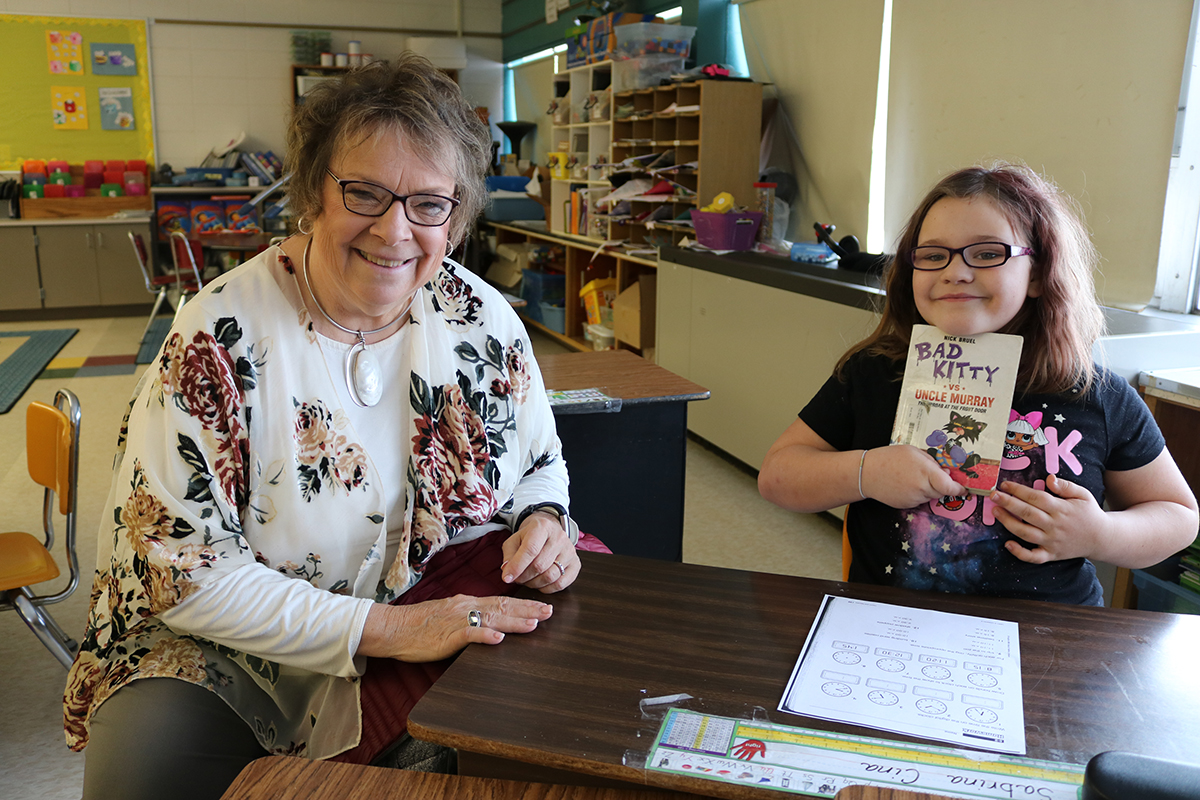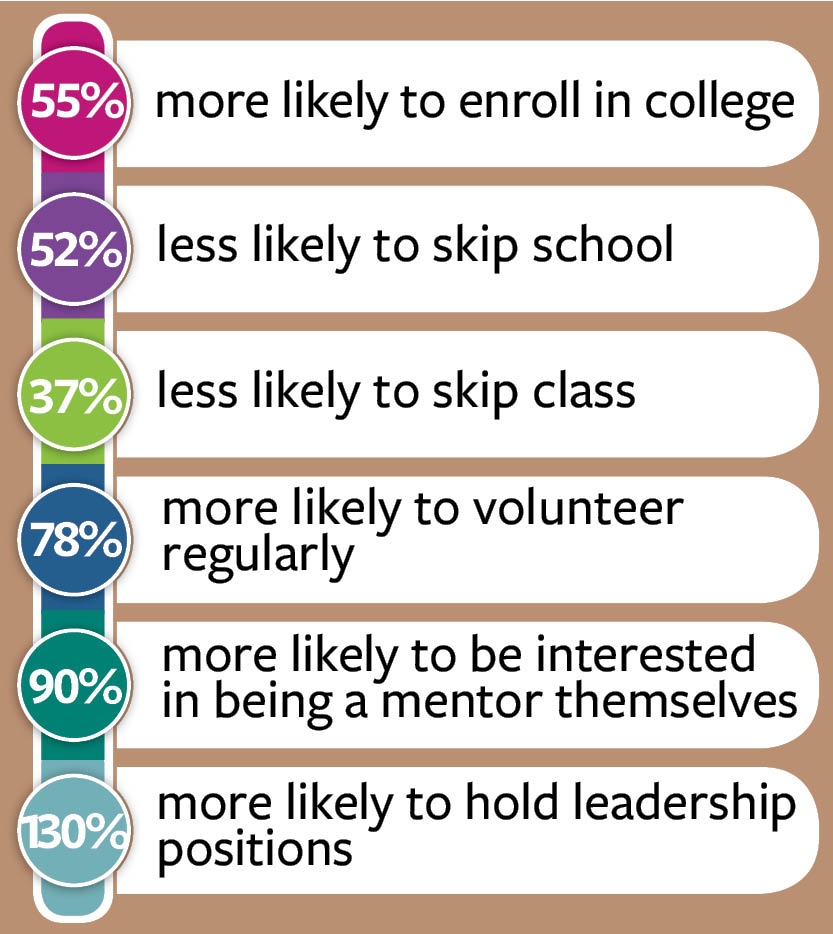When mentoring children and teens, positive energy spreads
By Pat Ruda, FSPA justice and peace promoter

Pat Ruda mentors at Hamilton Elementary School every Wednesday. She greets her mentee Sabrina at the door and they catch up over breakfast. Pat then spends time with Sabrina in the classroom.
Also in this issue of Presence, you read about the implications of mentoring the millennial generation. But the importance of guiding and encouraging others while empowering them to become their best selves doesn’t stop there. In fact, it’s essential that we also consider the opportunities that exist if we mentor the generations following the millennials.
Sisters and affiliates have a long history of mentoring children and teens in different capacities.
According to MENTOR: The National Mentoring Partnership at-risk children who had a mentor were:

Overall, mentored youth experience more self-confidence, and greater self-esteem, and are far better equipped to create goals for themselves.
Mentors gain from this relationship as well. Sister Mildred Tigges mentored for five years at Hamilton Early Learning Center in La Crosse, Wisconsin. Sister Mildred defined her role as one of “love and encouragement, gently showing them how to do better and be respectful students.”
Sister Lucy Ann Meyer is also a mentor at Hamilton. Her biggest surprise has been how little things can make a huge difference. She knows that a loving presence can make a difference and a brighter future. “This loving presence gives youth a sense of hope which is very important for many students,” says Sister Lucy Ann. “Being a mentor is a rewarding experience.”
Another version of mentorship is Franciscan CORE, Viterbo University’s five-day summer, residential program for high school youth offering education, experience and reflection on Catholic Social Teaching themes and principles using a Franciscan lens.
Emily Dykman, an affiliate with FSPA, serves as the institute’s director and current Viterbo students mentor for the high school students. About mentorship opportunities, Emily says, “Don’t be afraid to step into a relationship with another age group. Mentoring creates positive impact in youth’s lives and we can always use a little positive energy in our lives.”
For mentorship ideas and opportunities, connect with me at pruda@fspa.org.


